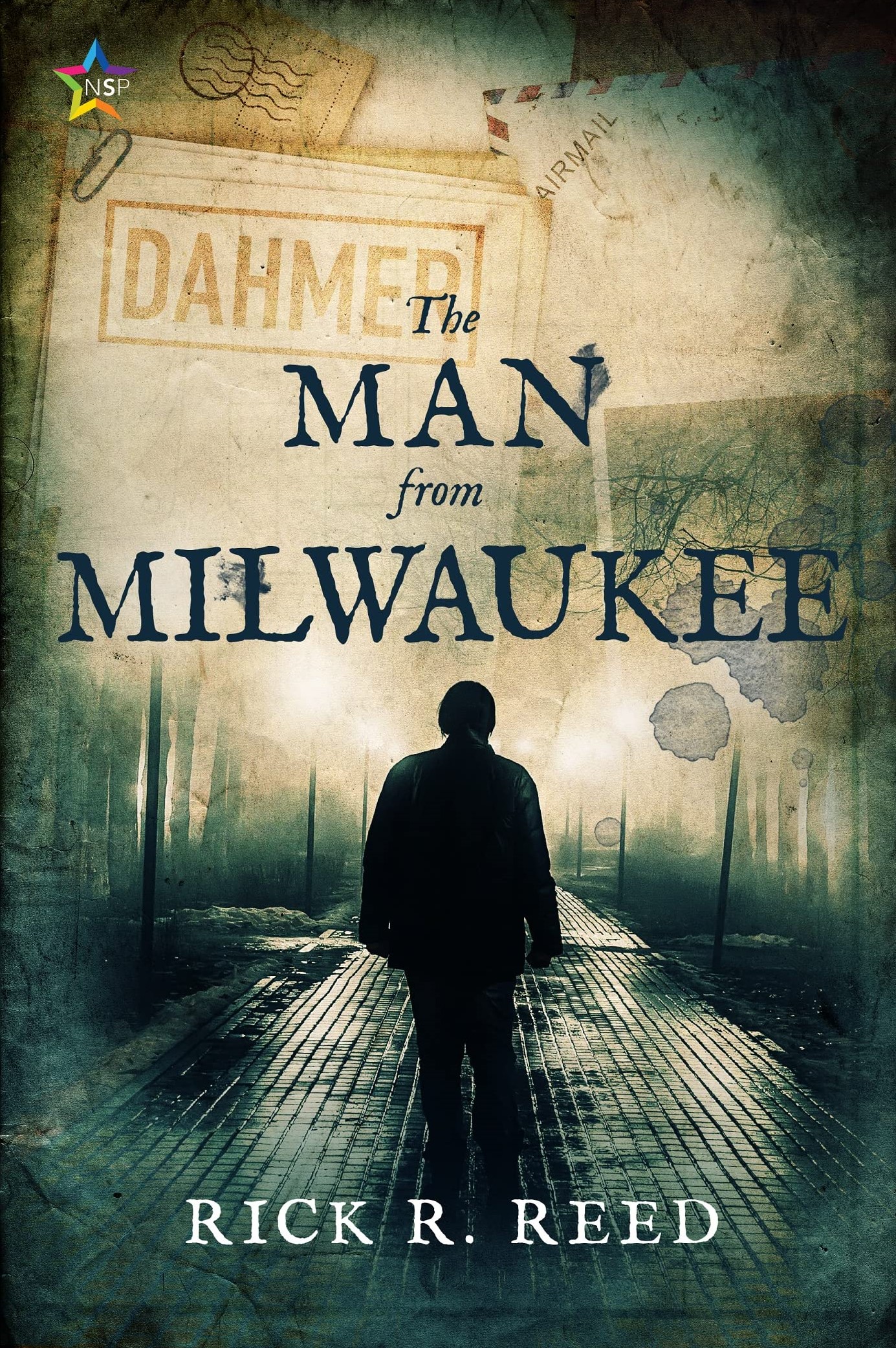 NineStar Press / July 2020
NineStar Press / July 2020
Reviewed By: Vince A. Liaguno
Rick R. Reed returns to his horror roots with The Man from Milwaukee, a surprisingly fresh thriller about obsession, trauma, and—ultimately—the redemption of forgiveness. It’s 1991 and notorious serial killer and cannibal Jeffrey Dahmer has just been apprehended by authorities. Chicagoan Emory Hughes, a glum, closeted gay man working a dead-on job at an insurance company, becomes fascinated by the news reports of Dahmer’s crime spree. Amidst a truly cheerless life that includes caring for his bedbound, AIDS-stricken mother and struggling through a strained relationship with his recalcitrant sister, Emory’s fascination turns into an obsession that manifests in a macabre pen pal relationship with Dahmer in prison. When an openly gay younger man named Tyler Kay comes to work at the insurance company and strikes up a relationship with the introverted Emory, the older man is forced to confront his inner demons, with deadly consequences.
Reed gets major props for taking The Man from Milwaukee in unexpected directions several times throughout the novel. In the hands of a lesser writer, any story about a sexually repressed gay man obsessed with Jeffrey Dahmer would play out in predictable and gruesome ways. But Reed, a veteran of multiple genres, shrewdly layers in some interesting twists and turns—and when you think the story is going left, he unexpectedly banks right. He fashions his novel more of a character study of Emory and, not unlike Stephen King did with Annie Wilkes in Misery, imbues his villain with humanity. In the process, he manages a feat not many writers can pull off: He makes Emory a genuinely sympathetic villain. While readers are rooting for a good outcome for Tyler, they’re also hoping that Emory gets some redemption by story’s end.
With The Man from Milwaukee, Reed never sacrifices tension or that pervasive sense of dread. Bad things happen in this book, which leads readers to believe that characters—especially Tyler—are in grave danger. But where other thrillers increasingly accelerate from 0 to 60 mph and follow the highway straight to the cliff’s edge and over, Reed isn’t afraid to take his foot off the gas at unexpected places in his narrative or turn down a side road on occasion. It a narrative device that makes for a less conventional reading experience, keeping readers just enough off balance without throwing them for the total loop.
Secondary characters are used judiciously, never clogging up Reed’s straightforward plot, which has Tyler on a collision course with Emory’s descent into madness. Emory’s sister, Mary Helen, figures more prominently in the novel’s third act, and her character arc is one of the many pleasant and unpredictable joys of this otherwise dark work of fiction. At story’s end, the characters who make it through grapple with the cost of trauma, the toll of loneliness, and the price of forgiveness. It’s here where Reed brings his well-paced, engrossing tale to yet one last surprising turn in the narrative road, one certain to leave readers thinking about The Man from Milwaukee for days after closing the book.
Purchase The Man from Milwaukee by Rick R. Reed here.